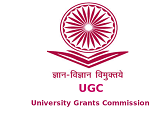Neuromuscular Disorders And Prosthodontic Strategies In Complete Denture Patients
DOI:
https://doi.org/10.55995/j-cpi.2023009Keywords:
Neuromuscular disorders, complete denture, Myasthenia gravis, Cerebral ataxia, Facial paralysis, Parkinson’s disease.Abstract
Neuromuscular disorders leads to loss of muscle function because they affect the musculature and/or the nervous system. Etiology could be due to autoimmune disorders, genetic/hereditary disorders. The process of mastication is controlled and coordinated by a well-defined neurological system which primarily consists of skeletal muscles, motor and sensory nerve fibers. This neuromuscular control involves in every phase of complete denture prosthesis construction.
Skeletal muscles directly play a vital role in complete denture prosthesis function. A good muscular control and coordination is necessary for denture stability by means of active and passive muscle fixation. Muscles of mastication and muscles of facial expression are widely involved in denture stability. Hence neuromuscular control plays a vital role in denture construction as well as function.
Downloads
Published
How to Cite
Issue
Section
License
The entire contents of the Journal of Clinical Prosthodontics and Implantology are protected under Indian and international copyrights. The Journal, however, grants to all users a free, irrevocable, worldwide, perpetual right of access to, and a license to copy, use, distribute, perform and display the work publicly and to make and distribute derivative works in any digital medium for any reasonable non-commercial purpose, subject to proper attribution of authorship and ownership of the rights.






